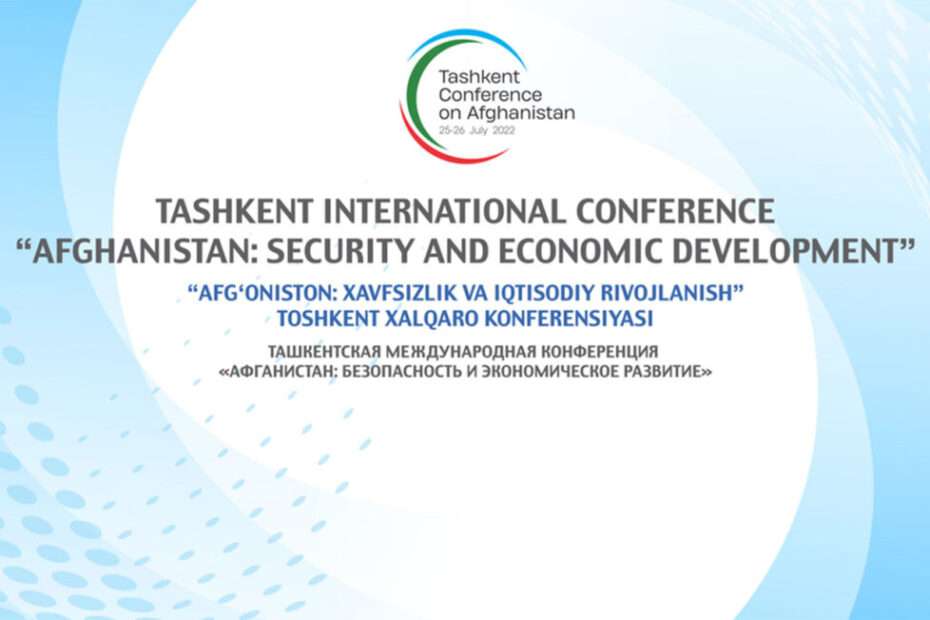On 26 July 2022, the Tashkent International Conference “Afghanistan: Security and Economic Development” was held, which was attended by special representatives for Afghanistan from more than 20 states of Central and South Asia, Europe, America, the Middle East, Asia-Pacific region, directly involved in the Afghan settlement, heads and specialists of international and regional organizations, as well as a delegation of the provisional government of Afghanistan.
Heads and experts from leading think tanks of Afghanistan’s neighbors, including all Central Asian countries, Russia, the United States, Iran, Pakistan, India, and Belgium were invited to participate in the event.
One of the most important topics of discussion were Afghanistan’s social and economic rehabilitation and the implementation of infrastructure and humanitarian projects designed to bring long-awaited peace to present and future generations of the Afghan people. Thus, during his speech, Sanat Kushkumbayev, Deputy Director of KazISS, highlighted:
“The shift of global powers’ attention to Eastern Europe has taken the Afghan question off the global agenda and moved it to the regional level. Frankly speaking, Afghanistan today is left to itself. It is extremely important for us, as neighbors of this state, to take the initiative and work in a coordinated manner to prevent a new security crisis in the region. Cooperation on the Afghan issue today will help to ensure the stable development of this country in the future”.
Conference participants also exchanged views on ways to develop agreed approaches for building a pragmatic dialogue with the new Afghan authorities.
According to the experts, such dialogue should focus on the fulfillment of the key demands of the international community by the provisional government of Afghanistan, in particular to prevent the Afghan land from becoming a source of permanent threats to the security interests of neighboring countries and other states around the world.


